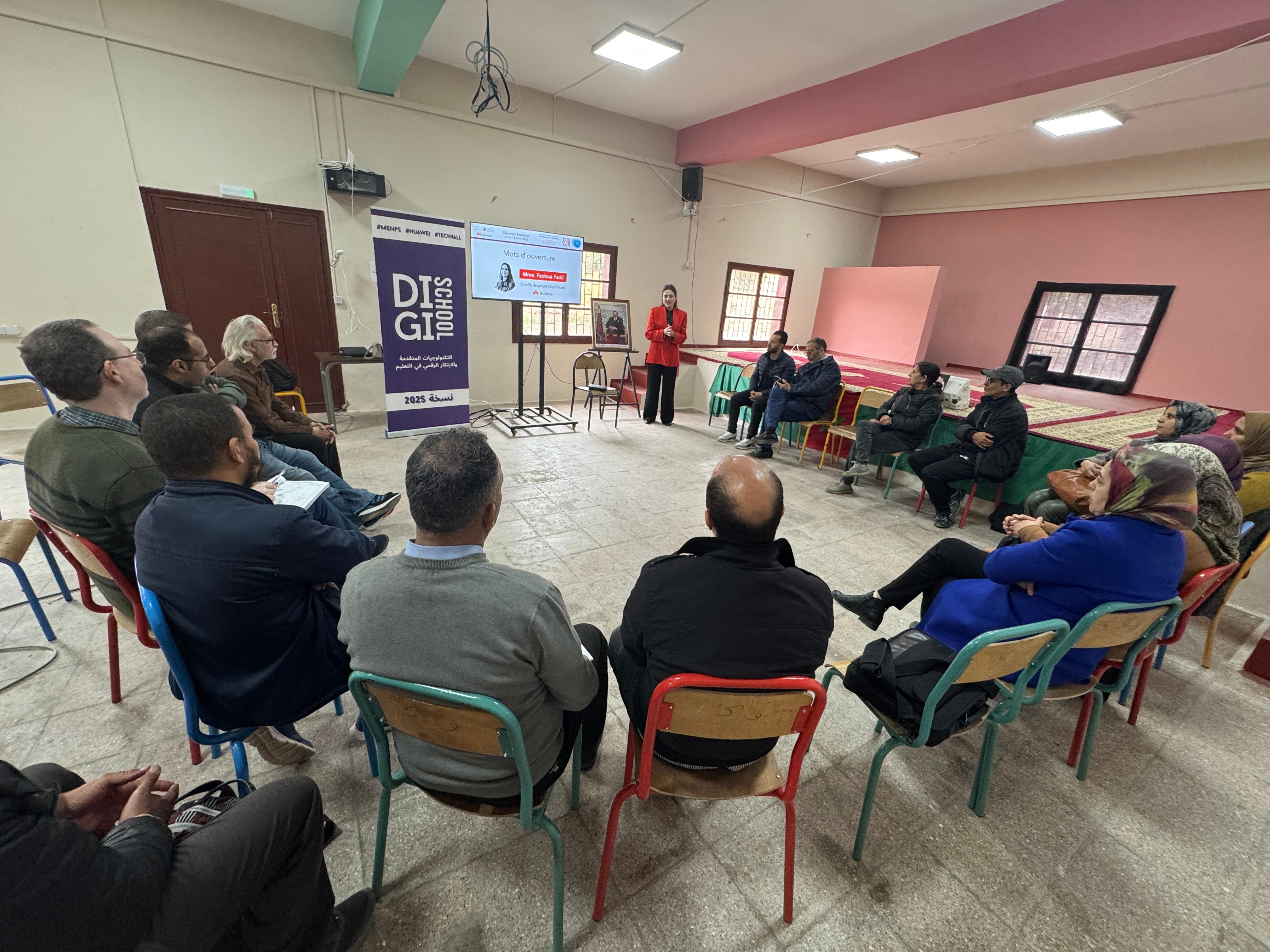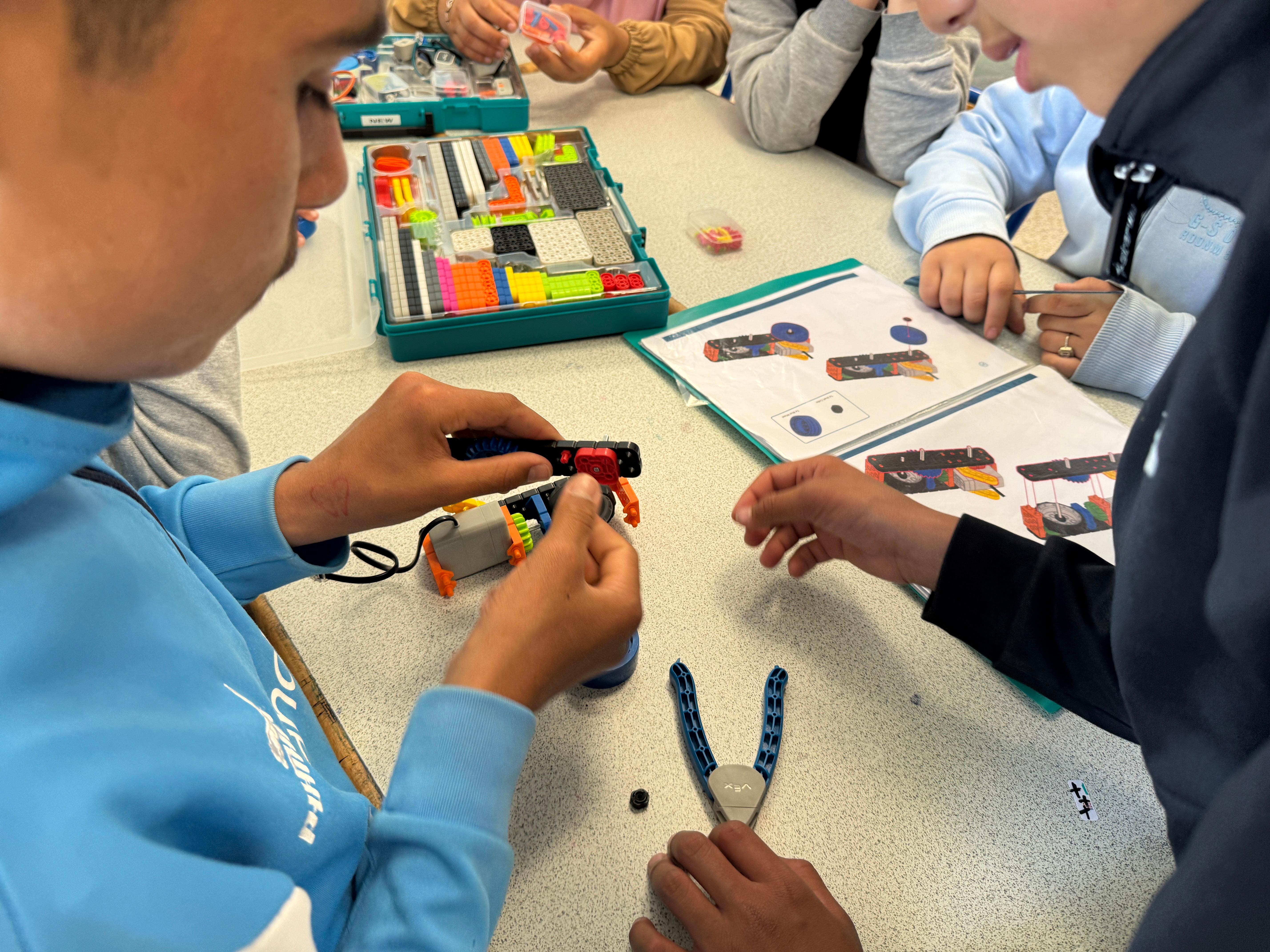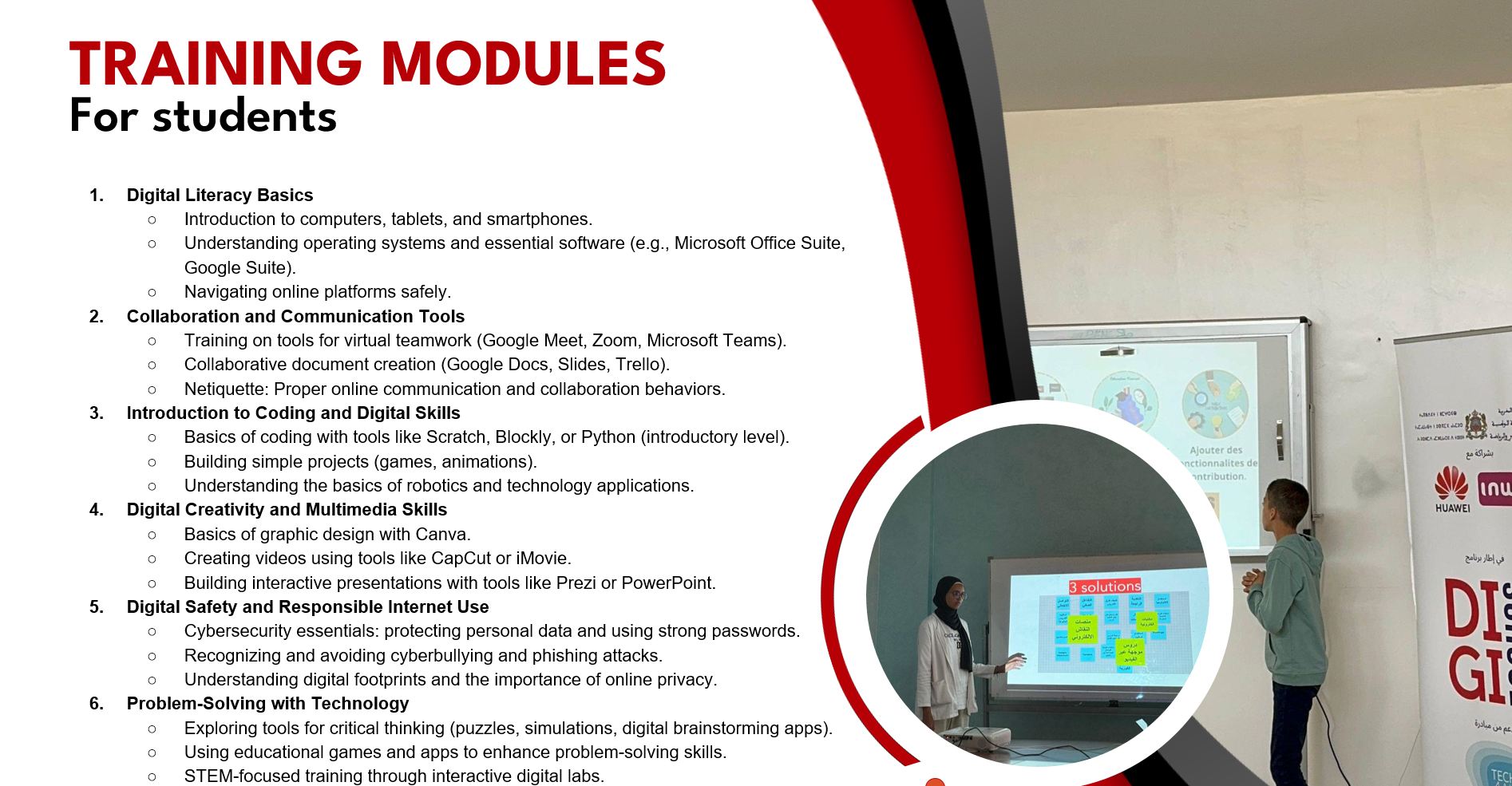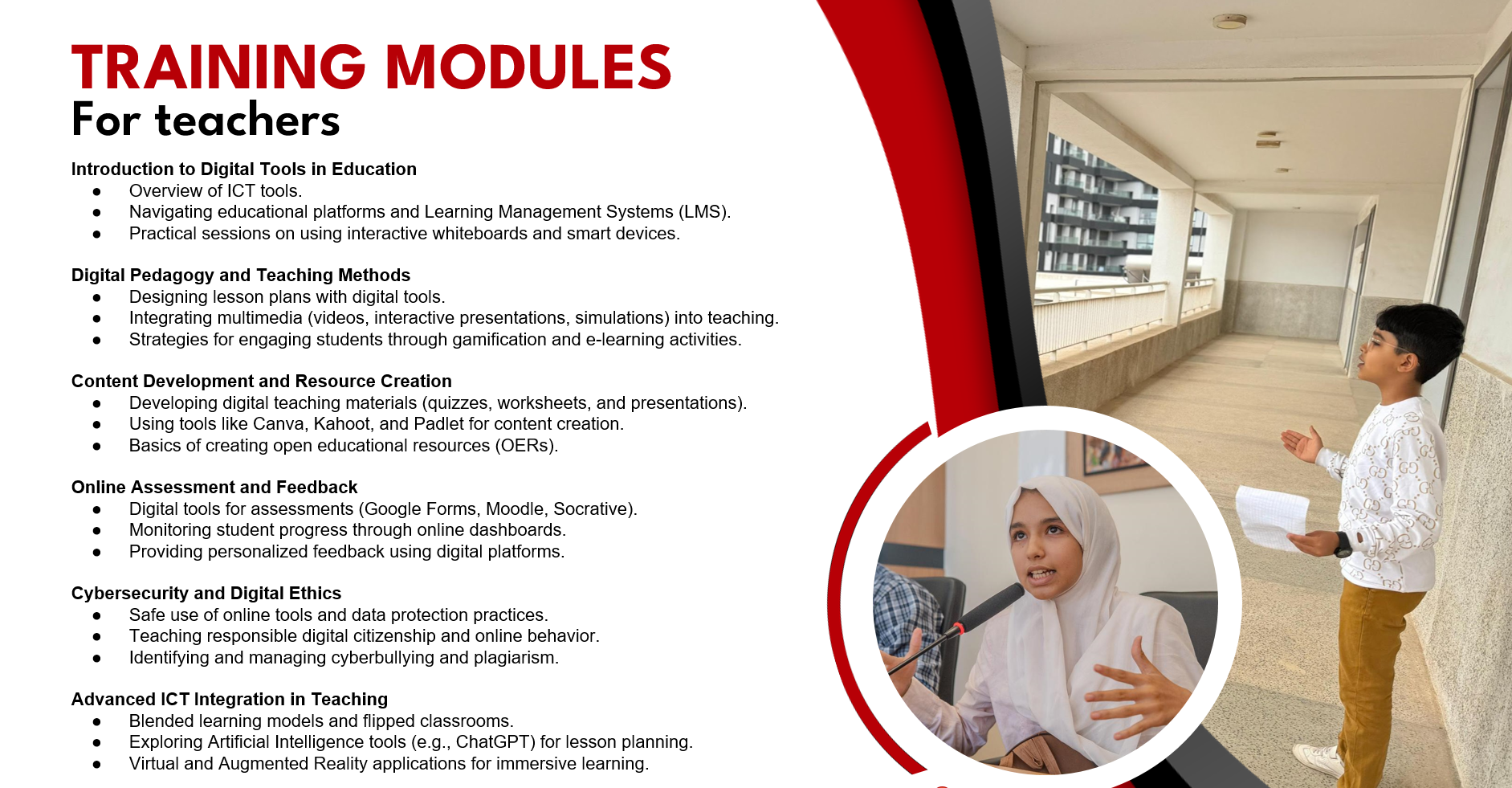Morocco DigiSchool: Transforming Education with Practical ICT Training
In February 2024, Morocco took a big step towards closing the gap in technology access thanks to the Morocco DigiSchool project. Running under Huawei’s TECH4ALL initiative, DigiSchool is a national initiative aimed at equipping students and teachers with essential digital skills. The program also offers an introduction to the design thinking methodology and emerging technologies, enabling participants to effectively address challenges within their educational institutions.
The project is aligned with national strategies such as the GENIE Program, which aims to integrate ICT into education through digital infrastructure, teacher training, and digital content development, and Digital Morocco 2030, the goal of which is to position Morocco as a leader in digital transformation and drive the digital economy.
Now in its second phase in 2025, Morocco DigiSchool comprises a range of linked activities throughout the year covering Morocco’s 12 regions. The project’s phases include:
- National School Roadshows
- Teacher training
- Follow-up and implementation
- Local tech fairs
- Regional hackathons
- A National bootcamp
The regional hackathons are competitions in which students showcase solution prototypes based on skills learned in the roadshows. The winning solutions are showcased nationally, which is followed by a national bootcamp for the 12 regional champions during which they focus on improving their prototypes and finalizing pitches.
In this post, I examine the practical ICT training that DigiSchool provides for teachers as the architects of change and for students as the shapers of tomorrow’s digital economy.
Empowering teachers with practical digital skills

The teachers training modules under the Morocco DigiSchool project are designed not only to build digital competencies, but to also ensure that educators can effectively transfer the new skills to their students.
Building a future-ready generation of students

Student training takes places during roadshows across Morocco’s 12 regions. This year, eight have been completed and the remaining four will take place after the summer vacation.
As part of the DigiSchool program's commitment to fostering digital citizenship among youth, full-day student workshops focus on key aspects of cybersecurity and digital skills. This aims to raise students' awareness about the importance of protecting their personal data when navigating the Internet, using browsers, and engaging on social media platforms. Through interactive sessions, students learn how to identify common online threats—such as phishing, malware, and social engineering—and are introduced to best practices for safe and responsible digital behavior.
The workshops also include a hands-on session covering the fundamentals of coding and algorithmics, which designed to spark interest digital creation and problem-solving.
With the DigiSchool program covering practical ICT skills and focusing on the development of problem-solving capabilities, students learn to apply their skills to real-world scenarios. In turn, the community of DigiSchool teachers are positioned to train other teachers, as well as pass on their skills to students.
Morocco DigiSchool is helping to set the stage for today’s students to not just thrive in the digital world, but to also become ethical and innovative contributors to Morocco’s evolving digital landscape.


Learn more about Morocco DigiSchool and follow the Huawei TECH4ALL X acccount for more information on our education initiatives.
Disclaimer: Any views and/or opinions expressed in this post by individual authors or contributors are their personal views and/or opinions and do not necessarily reflect the views and/or opinions of Huawei Technologies.
Leave a Comment